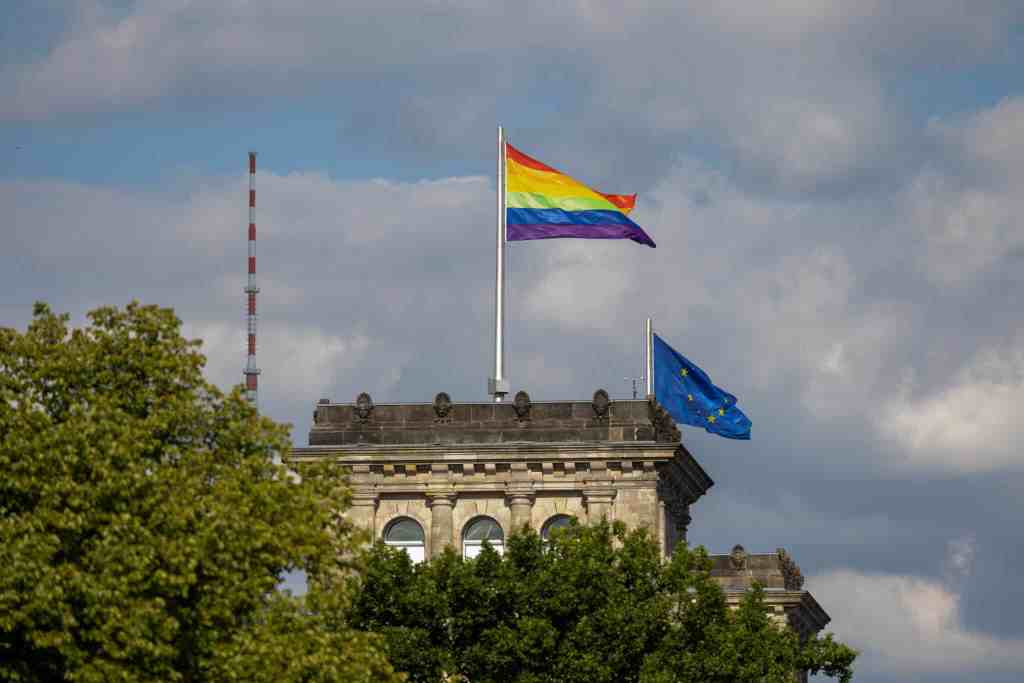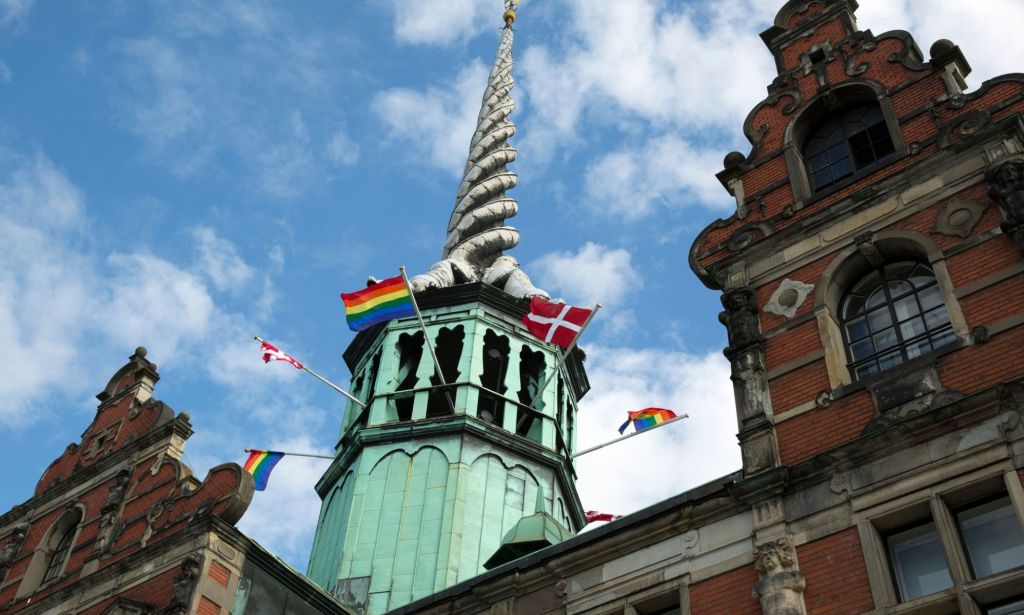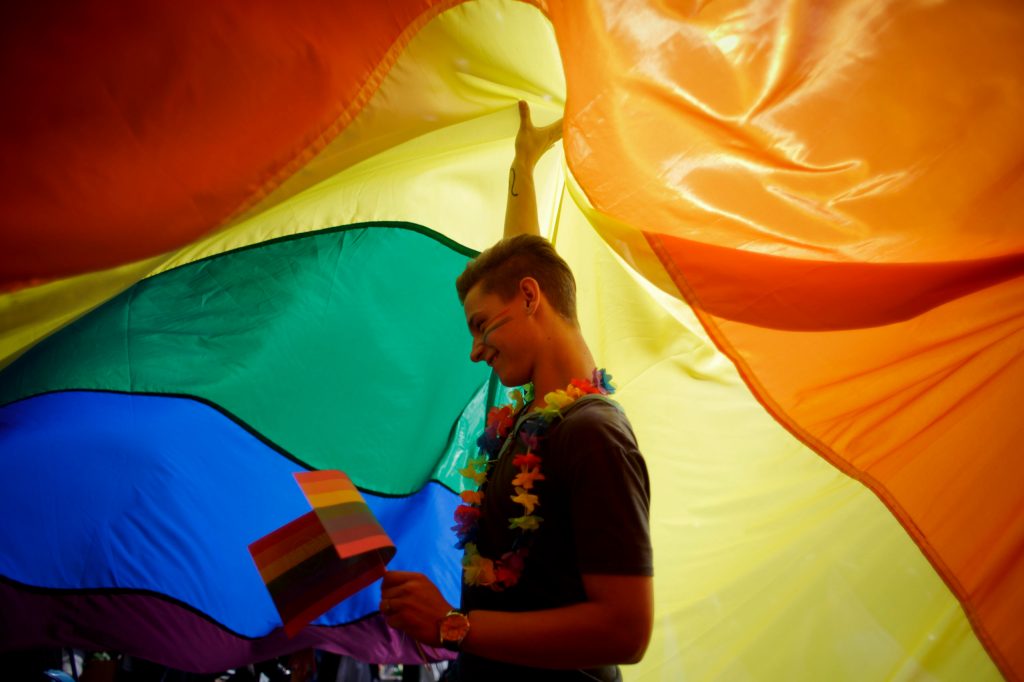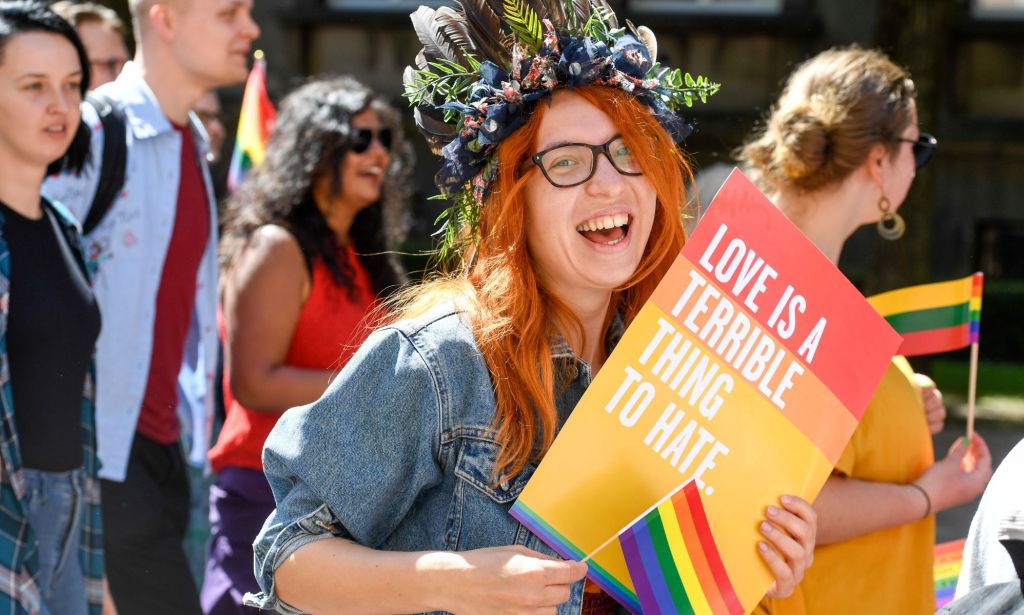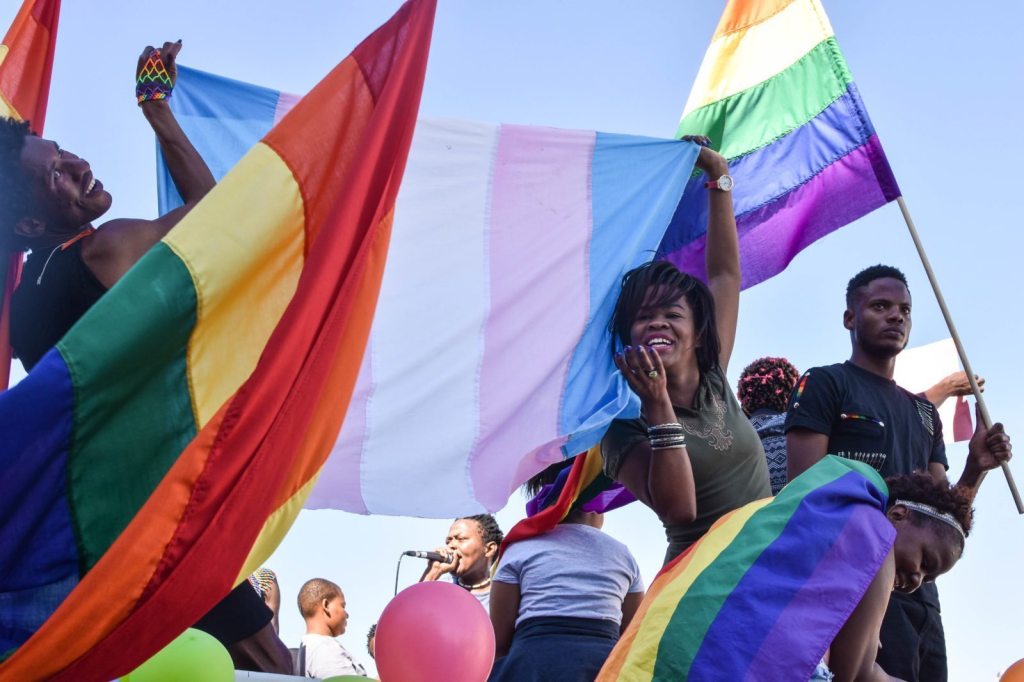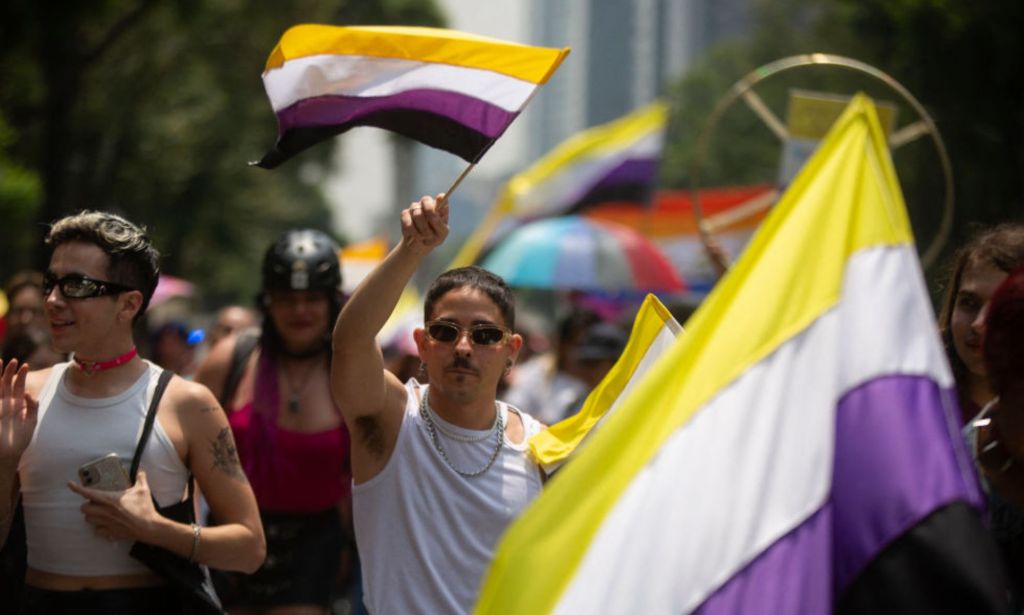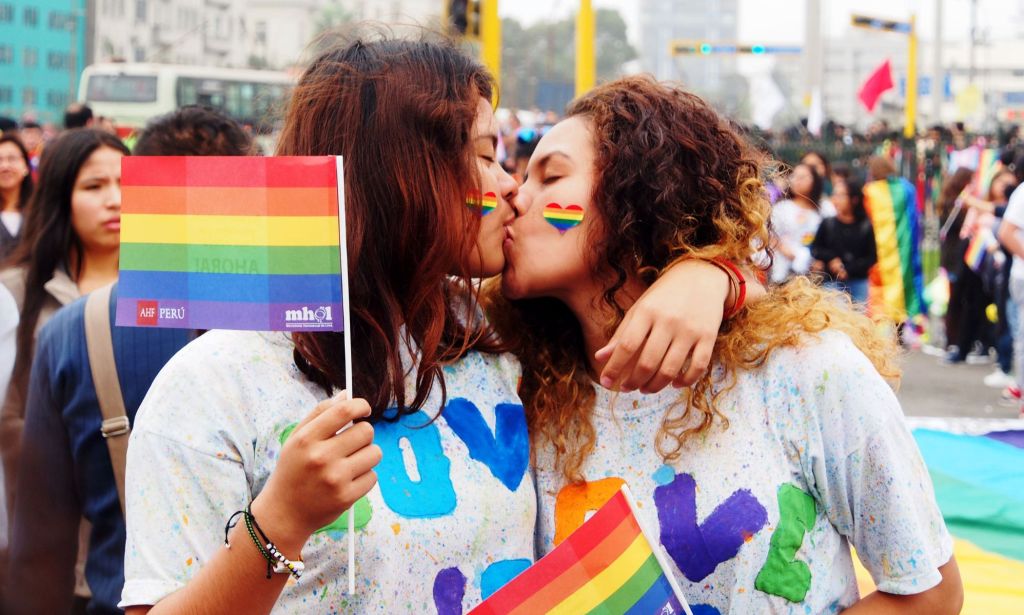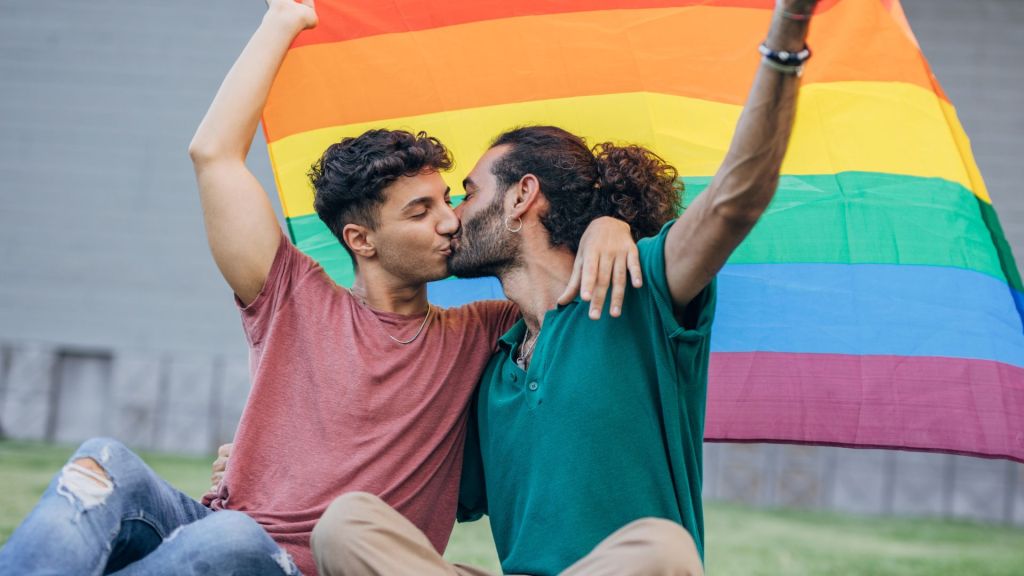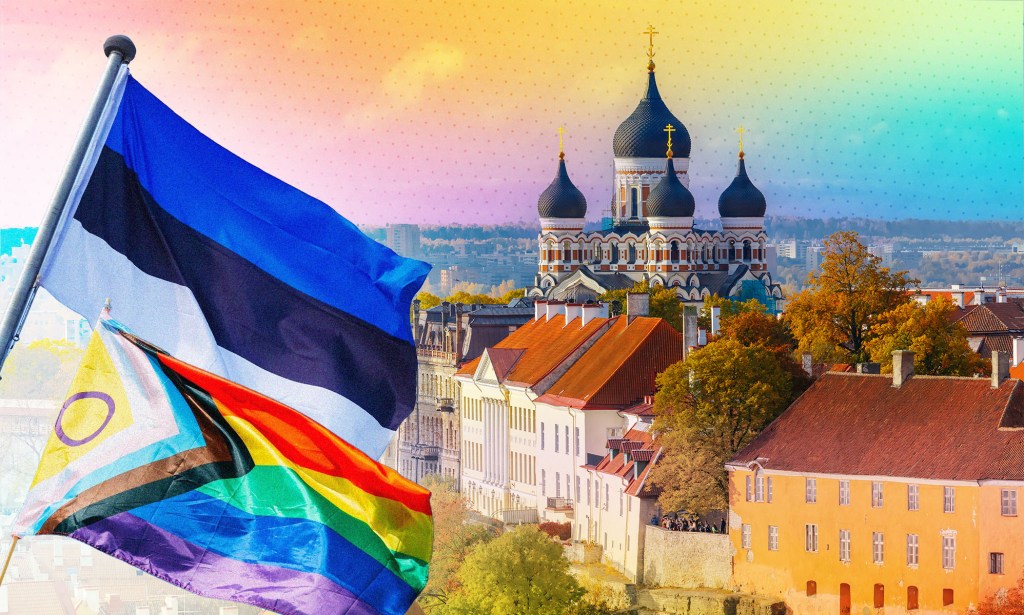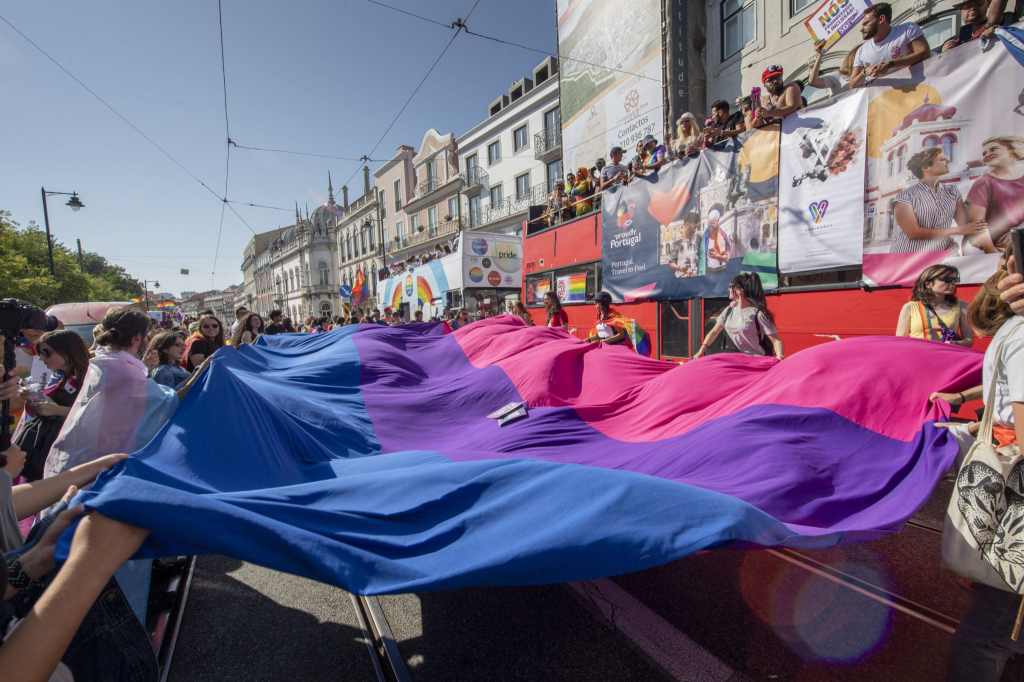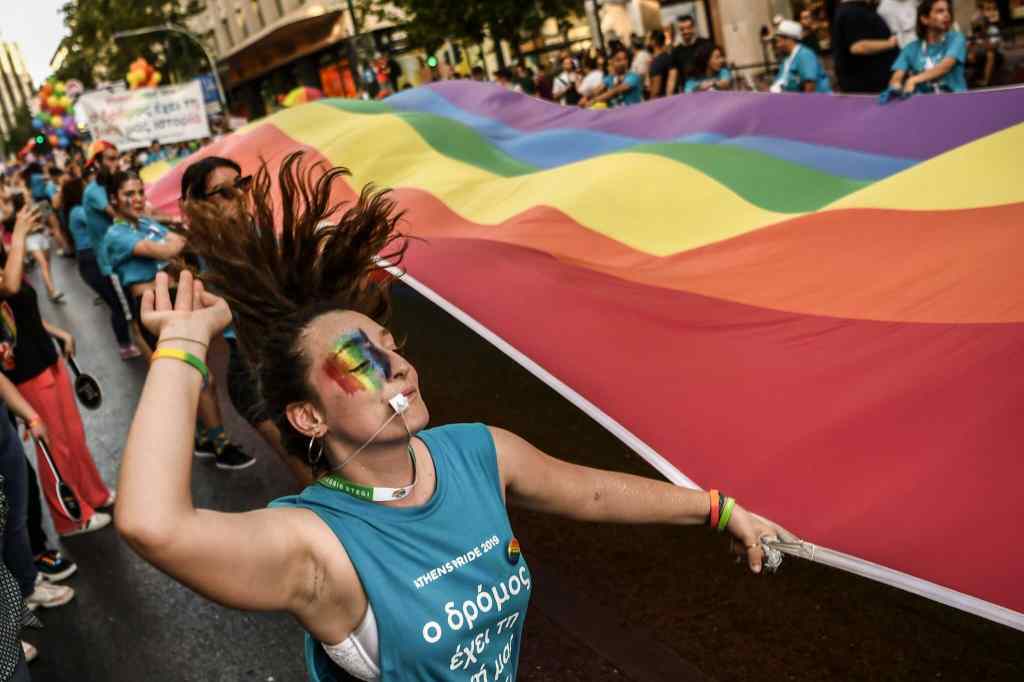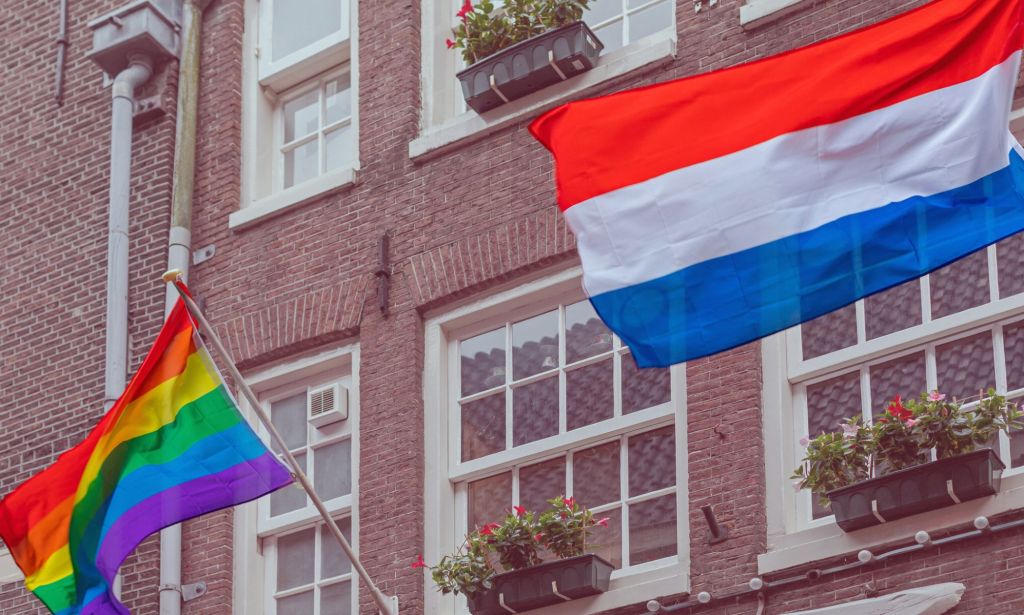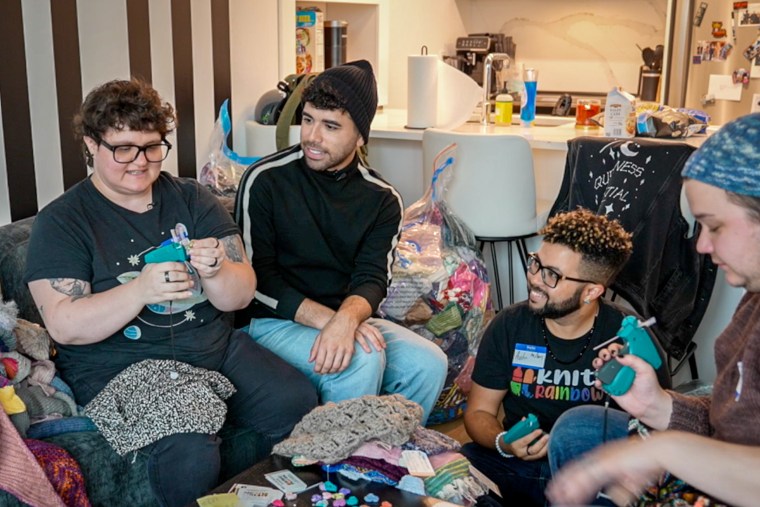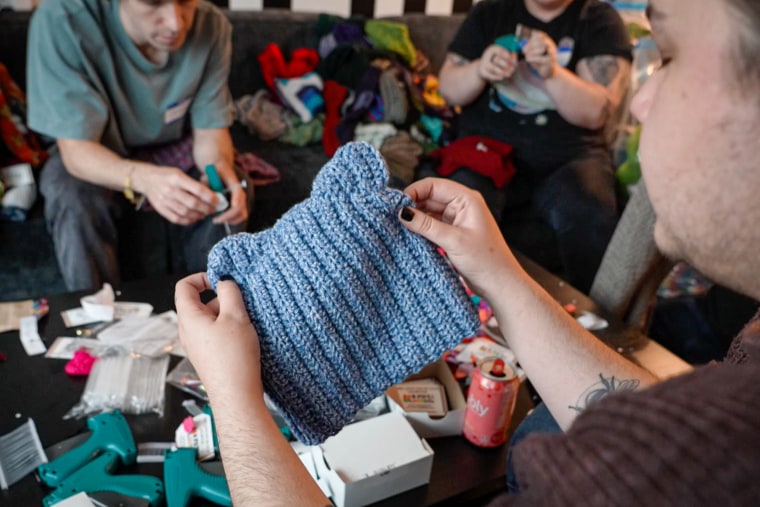Equality Wrapped: Key Takeaways from LGBTQ-Related Policy in 2024
As this unprecedented year of change comes to an end, we at MAP are taking a look back at the laws and policies that directly impact the experiences of LGBTQ people across the country. Below, we offer an overview of the major trends and biggest shifts from the past 12 months.
High Level Points of Interest
MAP’s real-time tracking shows that anti-LGBTQ laws were enacted in at least 18 states this year, but it also highlights numerous wins, including the fact that 92% of anti-LGBTQ bills introduced this year have not become law, according to the ACLU, as of December 10, 2024.
However, it is important to note that states that enacted a new anti-LGBTQ policy this year tended to enact more than one negative policy. Of the at least 18 states that enacted any new anti-LGBTQ policy this year, at least 13 enacted multiple anti-LGBTQ policies.
Unfortunately, New Hampshire followed this trend and became the first state in the Northeast to pass any explicitly anti-transgender law, including the enactment of a ban on medical care for transgender youth, a ban on transgender youth playing sports, and a curriculum censorship law.
At least 18 states* enacted new anti-LGBTQ laws or policies in 2024:
Alabama, Arkansas, Florida, Idaho, Iowa, Louisiana, Mississippi, Missouri, Montana, New Hampshire, Ohio, Oklahoma, South Carolina, Tennessee, Texas, Utah, West Virginia, Wyoming
At least 13 states* enacted new pro-LGBTQ laws or policies in 2024:
California, Colorado, Hawaii, Kentucky, Maine, Maryland, Massachusetts, Michigan, New Jersey, Pennsylvania, Rhode Island, Virginia, Washington
* Note: these lists reflect issues tracked by MAP’s Equality Maps, covering 50+ policies. States may have enacted additional anti- or pro-LGBTQ laws or policies not included here.
Equality Maps: LGBTQ Equality by State
The Movement Advancement Project (MAP) tracks over 50 different LGBTQ-related laws and policies. This snapshot shows the overall policy tallies for each state.
Transgender Health Care
In 2024, attacks on transgender health care continued to escalate, particularly via far-reaching attacks on public funding.
Public funding or coverage of transgender related health benefits
Idaho and South Carolina both enacted total bans on public funding for the provision of best practice medical care for transgender people of any age — effectively ending coverage of this medical care for state employees and their families, for state residents on Medicaid, and in numerous other settings.
Bans on medical care for transgender youth
New bans were enacted in four states (Ohio, Wyoming, South Carolina, and New Hampshire). Today 40% of all transgender youth in the country live in states with these bans. However, there were also multiple important wins for transgender medical care, including but not limited to:
- In Kansas, the governor vetoed such a ban for the second time in as many years.
- Proposed regulations that would have severely restricted access to care for transgender adults in Ohio were withdrawn after significant community and advocacy efforts.
- There are ongoing lawsuits in at least 17 states of the 26 states with bans, including the current U.S. Supreme Court case.
Equality Map: Bans on Best Practice Medical Care for Transgender Youth
The policies depicted in this map reflect statewide bans, limitations, or restrictions on access to best practice…
“Shield” or “refuge” laws protecting transgender health care
New laws protecting both patients and providers of transgender-related medical care were enacted in three states (Maine, Maryland, and Rhode Island), bringing the total to 16 states and D.C. with a law or executive order to this effect.
Equality Map: Transgender Healthcare “Shield” Laws
The policies shown in this map are “shield” or “refuge” laws protecting transgender people’s access to medically…
Impacts on Identity Documents
At the beginning of last year (2023), 0% of transgender people lived in states with total bans on gender marker changes to driver’s licenses.
Today, 17% — or one in six transgender people — live in states that ban transgender people from accessing accurate licenses.
Gender marker changes on driver’s licenses
Arkansas, Missouri, and Montana enacted new and severe restrictions, a court ruling allowed Alabama to reinstate severe restrictions that had previously been ruled unconstitutional, and Florida and Texas enacted total bans.
However, new lawsuits were filed against anti-transgender driver’s license policies in Arkansas, Montana, and Tennessee. Additionally, Illinois residents were newly able to access “X” options on their driver’s licenses in 2024.
Gender marker changes on birth certificates
Massachusetts and Illinois eliminated medical documentation requirements for gender marker changes. Massachusetts introduced new “X” options, while West Virginia banned the use of “X” options.
Equality Maps: Identity Document Laws and Policies
These maps outline ID laws and policies for updating gender markers on driver’s licenses and birth certificates.
In addition, in 2024 at least three states (Florida, Montana, and Texas) enacted new total bans on gender marker changes on birth certificates, doubling the number of states with total bans and now, covering 19% of transgender adults.
Regulating Gender to Allow Discrimination
In 2024, five states passed new laws regulating gender by defining “sex” throughout state law. Importantly, three of the five new laws also contained an explicit bathroom ban, which suggests that similar combination bills might be more common in 2025.
- Five states (Idaho, Louisiana, Mississippi, Oklahoma, and Utah) enacted new laws defining “sex.” As a result, now 10 states have a law or executive order regulating gender, and in states like Kansas, Montana, and others, these laws have been used to force other anti-LGBTQ policies like total bans on gender marker changes on identity documents.
- However, in 2024, the governor of Arizona vetoed a similar law, and Montana’s 2023 gender regulation law was ruled unconstitutional, though the lawsuit is ongoing.
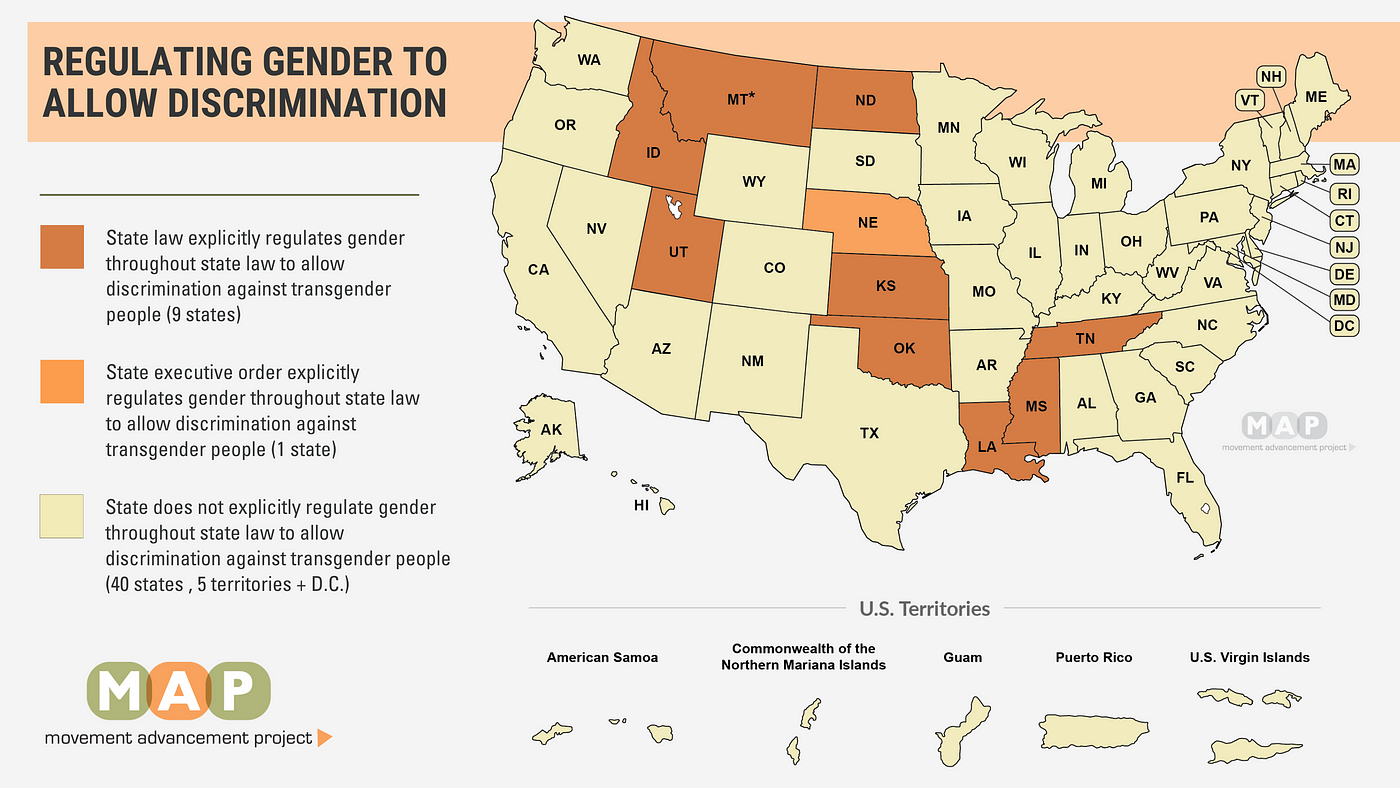
Strengthening Marriage and Pathways to Parentage
For many LGBTQ+ families, the recent election has brought up new concerns about the safety of our marriages and parental rights. In 2024, advocates worked to advance a number of key laws and policies that directly impact the lives of same-sex couples, LGBTQ+ parents and their children.
Parental recognition laws
In Michigan, the state enacted the Michigan Family Protection Act, a package of nine bills that made great strides in modernizing the state’s parenting laws, while in Massachusetts, the state enacted the Massachusetts Parentage Act, strengthening existing pathways and adding new ones.
Freedom to marry
In November, three states (California, Colorado, and Hawaii) all repealed their outdated and discriminatory constitutional amendments banning marriage equality. Read more of our analysis here.

In Virginia, the Republican governor signed a law making it illegal to deny a marriage license to a couple regardless of either person’s race, sex, or gender. It also requires the state to recognize lawful marriages regardless of the parties’ race, sex, or gender. While the state’s now-unenforceable constitutional amendment banning gay marriage remains on the books, this new law is an important, explicit recognition of legal marriages.
School Based Policies
In 2024, efforts to erase LGBTQ youth from public life continued via a range of tactics, including making it illegal to talk about LGBTQ people or support LGBTQ students, banning books that mention LGBTQ issues, preventing transgender youth from playing sports with their friends, and more.
Bans on transgender kids playing school sports
Two new states (Ohio and New Hampshire) enacted bans on transgender youth playing school sports according to their gender identity. Today, 26 states have a sports ban on the books, affecting 38% of transgender youth.
Equality Map: Bans on Transgender Youth Participation in Sports
The policies shown in this map are blanket bans on transgender people’s participation in sports, which are both…
LGBTQ curriculum censorship laws
Three new states passed LGBTQ-specific curriculum censorship laws in 2024, with Louisiana becoming the 8th state with a “Don’t Say LGBTQ” law. Wyomingand New Hampshire enacted new laws requiring schools to notify parents in advance of LGBTQ-related content and either requiring parents to opt their children in to that instruction (Wyoming) or allowing parents to opt their children out (New Hampshire).
Equality Map: LGBTQ Curricular Laws
LGBTQ-related curricular laws are important for LGBTQ students’ health, wellbeing, and academic success. This map shows…
LGBTQ-inclusive curricular laws
Washington became the seventh state to explicitly require that state curricular standards include LGBTQ people and history. In addition, in 2024, a new lawsuit was filed challenging Montana’s curriculum censorship law from 2021, and in Florida, an important settlement was reached that narrowed the harm of the state’s “Don’t Say LGBTQ” law.
Click above or here to view our Equality Map for LGBTQ-inclusive curricular laws.
Forced or encouraged outing of transgender youth in schools
Three new states (Idaho, Tennessee, and South Carolina) enacted laws endangering transgender youth in schools by potentially forcing their outing.

Bathroom Bans
In 2024, new bathroom bans were enacted in six states: Alabama, Louisiana, Mississippi, Ohio, South Carolina, and Utah. As a result, 14 states now have these bans of varying scope; all of these bans apply to K-12 school settings, and half apply more broadly to other government or publicly-owned settings.
Equality Map: Bans on Transgender People Using Bathrooms and Facilities
The policies shown in this map prohibit transgender people from using bathrooms and facilities-such as locker rooms…
Religious Exemption Laws
This year, there were multiple efforts to expand state religious exemption laws that create carveouts or exceptions to existing laws for those seeking exemptions from state laws that burden their religious beliefs.
- In 2024, Idaho enacted a targeted religious exemption for both child welfare service providers and mental health providers.
- Bringing the total to 27 states, Iowa and Utah each enacted a broad “Religious Freedom Restoration Act” (RFRA) in 2024.
- Tennessee became the first since 2016 to enact a religious exemption law for public officials solemnizing marriages.
Other Positive Developments
Nondiscrimination Laws
While Maryland already had LGBTQ-inclusive protections in many key areas, a new 2024 law added explicit LGBTQ protections to the state’s laws for nondiscrimination in:
- Private health insurance
- Credit and lending
- Jury service
Conversion “therapy”
Two states took action to limit the dangerous and discredited practice of conversion “therapy.”
- In Pennsylvania, five relevant state administrative boards adopted new policies effectively prohibiting the use of conversion “therapy” statewide.
- Kentucky’s governor issued an executive order partially banning the practice by prohibiting the use of state funds, among other directives.
Equality Map: Conversion “Therapy” Bans
Conversion “therapy” laws prohibit licensed mental health practitioners from subjecting LGBTQ minors to harmful practices that attempt to change their sexual orientation or gender identity.
Insurance coverage of fertility treatment and preservation
- California and New Jersey passed new laws mandating that private insurers cover fertility treatment care (such as IVF) and the new requirements are also explicitly LGBTQ inclusive.
- Massachusetts passed a new law mandating that private insurers cover fertility preservation (such as egg retrieval), including storage.
Gay panic defense
Michigan and Minnesota joined 18 other states and the District of Columbia, becoming the latest states to ban the use of LGBTQ panic defenses in courtrooms.

